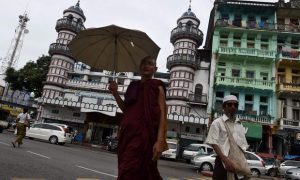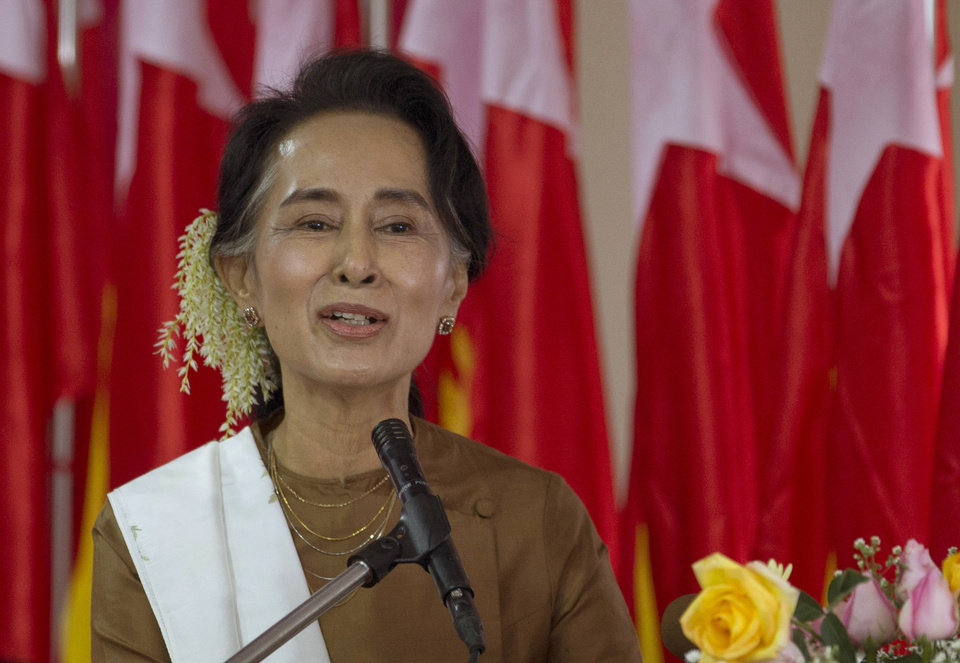Nobel peace prize laureate Aung San Suu Kyi and the new Myanmar government have cautioned the international community against using “emotive terms” that could make the tensions in Rakhine state more difficult to address.
They are talking about references to the minority Muslim population that has lived for generations in the predominantly Buddhist country’s Rakhine state as “Rohingya”.

The term matters, because it symbolises recognition of a community that has long been oppressed. Denying anyone’s identity is a serious form of discrimination and neither the international community nor the government of Myanmar should compromise when it comes to recognising fundamental rights of this nature.
Our identity defines us. It can be associated with race, religion, ethnicity, nationality, culture, gender, sexual orientation, and many other qualities that speak to the essence of our standing, both individually and in wider society. Identity is – or should be – the glue that binds people together.
Nelson Mandela, another Nobel peace prize laureate, understood the healing power of group identity very well. He used national identity to help unite a society profoundly divided by the racial segregation imposed during the apartheid regime in South Africa.
For example, in 1995 he used the Rugby World Cup to bridge the gap between two populations that had learned to fear and despise each other. Despite criticism from his “own” people, Mandela stood firm in his resolve that his presidency should be one of reconciliation and healing, rather than of hatred and a return to civil war.
However, history has shown that identity can also be used for the opposite purpose.
In many places and conflicts around the world, identity has been manipulated to feed ideologies, attain or consolidate power, or respond to real or perceived threats and so justify violent attacks that may amount to genocide, crimes against humanity or war crimes.
The Holocaust did not start with the gas chambers. Instead, it started with the first signs of discrimination against people based on their identity, who were blamed for problems that were in fact the result of a deep economic and financial crisis.
In South Africa, if Mandela had not taken action to address both the fears of the white minority as well as the grievances of the black majority, uniting all under their national identity as South Africans, the country could have quickly descended into a full-scale racial and bloody civil war, which all predicted would happen. He may well have averted a genocide.
The Rohingya in Myanmar have been denied a national identity. They have been stripped of their citizenship and are stateless. For many years, they have been subject to severe practices and policies of discrimination, with some of their most fundamental rights restricted, including the right to freedom of movement and the right to marry and found a family.
Thousands displaced by the 2012 violence have been living, segregated, in camps, while thousands more have been compelled to flee by land or sea. Many have been caught by networks of human traffickers, or have died while trying to reach other countries in the region. In Myanmar, a campaign of dangerous anti-Muslim and anti-Rohingya “hate speech” by extremists has the potential to lead to further violence.
Even the use of the term “Rohingya” to describe this religious and ethnic group has become sensitive and highly politicised. In fact, the Rohingya are not allowed to exercise their right to self-identification, a right that is recognised by international human rights law and in the jurispdence of human rights treaty committees. Instead, derogatory terms have been used to label them as outsiders, “foreigners” and “undesirable”.
The new president and government of Myanmar are in a difficult position. They have to manage the expectations not only of those who want to pursue and probably strengthen exclusionary policies against the Rohingya, but also of those who expect them to reverse this trend.
Most notably, they have to find a way to unite the diverse populations of Myanmar so that they live alongside each other in peace and without prejudice. In order to succeed, they will have to address the root causes of the tensions between different communities as well as longstanding grievances, and that will be challenging. But when we deny – or ask someone else to deny – an important aspect of an individual or community’s identity, this is tantamount to rejecting who those people are as human beings. This is not acceptable.
I sincerely hope the new president and government of Myanmar will look to Mandela as a role model.

